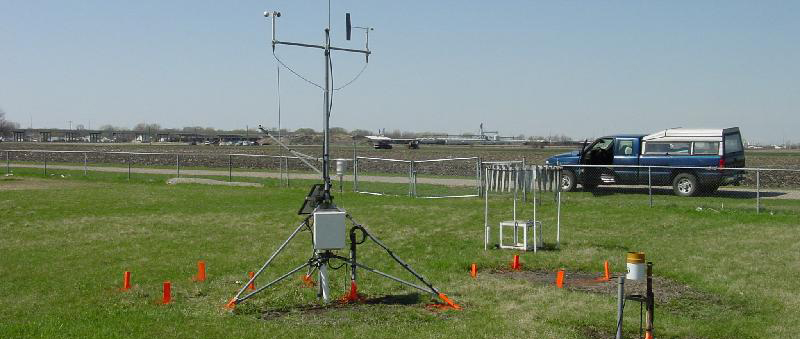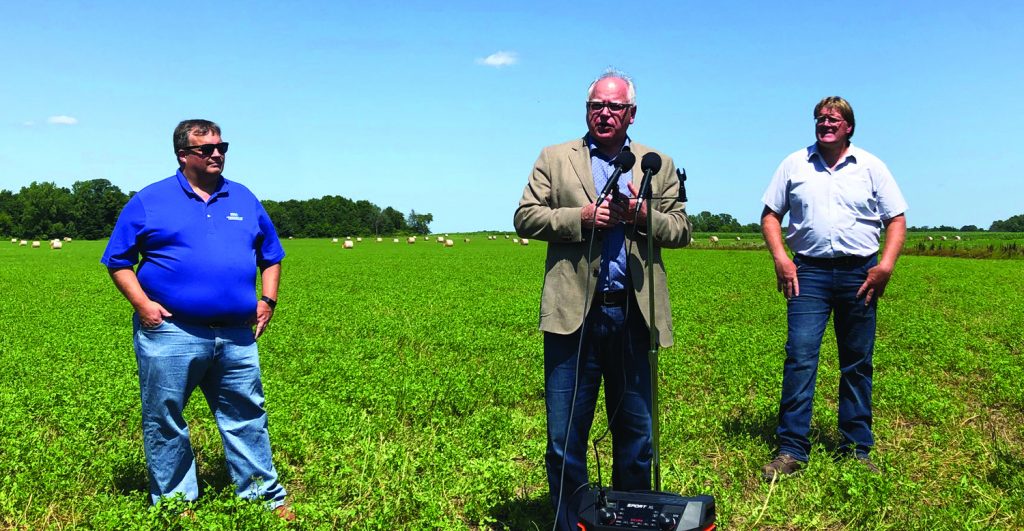Written by Brandon Wipf, a South Dakota farmer and director with the American Soybean Association
Stress. Worry. Anxiety. Words with which many ag producers have become all too familiar over the years. With recent depressed prices, bad weather, trade wars and an onslaught of consumer misinformation, the coronavirus pandemic could not have come at a worse time. Unfortunately, as is true in many areas of farming, the crisis didn’t wait until we were ready or until it was most convenient. It’s here and must be faced, ready or not.
There are so many things in our lives and careers over which we have little or no control. Farmers have to be better than most at accepting these lack of control issues; but the breadth of the present problems — the totality of the current crisis — has been staggering and overwhelming for many.
How should we respond, not only to our own stress, but to the stress being felt by those around us? How can we be anchors for our communities in these tough times, even as we ourselves are adversely impacted by what is happening? Here are some tips that work for me:
- Take stock of your current situation
This one could be difficult since the realities of your situation are likely contributing greatly to your stress level. I still think this is an important step because this is where you get it all out on the table. When facing big problems, I find they almost always shrink in size the moment I gain full perspective of them. It is likely that a large part of the stress you are feeling comes from fear of the
unknown. While many parts of our current crisis involve things that cannot be known at this time, the ways in which it affects your operation are more known to you than anyone else on the planet. So, sit down and start plugging in different numbers, think through different scenarios, and triage your situation. While you may not get exact answers, you should at least get a better idea of what you’re
facing, and there is no downside to that. - Build your team
During tough times, it is abundantly clear how reliant we are on the people around us. We lean on them more than we realize, and in good times it can be easy to take for granted how much they support us. Even though it may be difficult to gather in person, take this time to identify people in your life who you can share both your troubles and your triumphs. You are looking not only for
business expertise, but also emotional support. Choose wisely. If you do, your team will be a valuable resource for the rest of your career. - Stay off Facebook
All social media, really. Of course, social media has its place, and I’m certainly not telling everyone who reads this to delete Facebook; but if you are currently struggling with high amounts of stress, there are probably better places for you to spend your time. Think of it like this: We all know that Facebook is really just an algorithm that learns what sort of posts (and more importantly to their
business model, advertisements) you are likely to respond to and engage with. Then they can serve up a constant flow of the stuff, sealing you in a bubble with yourself and other people just like you — people who, in many cases, are dealing with the same stress that you are. Now, I’m no psychologist, and I know misery loves company, but I just can’t recommend an echo chamber to anyone dealing
with severe stress. Yes, social media poses a great opportunity for us in agriculture to tell our story, but those benefits do not outweigh your mental health. Take care of yourself; you can advocate when you are better. - Focus on the needs of others
“How can I do that when my own problems seem so big?” I know. When trouble really comes, it can be hard to think of anything or anyone else. But if tough times are leading you to stress, you can find a nice distraction in helping meet other people’s needs. Gaining a better perspective on the struggles of someone else can help with our attitude about our own situation. Helping them out may give us a few “quick wins” at a much-needed time. And, during this challenging period for our communities, there is no shortage of hurt and need. - Learn lessons for the future
While so much of what we are currently facing is beyond our control, none of us can claim to run a perfect business, have a perfect family, or live a perfect life. Tough times give us the opportunity to reflect on the things we have done in the past that have led in some small way to where we currently are. If you never admit your own shortcomings, you will make the same errors again, which will just
lead to more stress down the road. Do your future self a favor and use this time of social distancing to grow as a person. If a crisis of this magnitude doesn’t shake a few things loose in your life and business, nothing ever will.
If you or someone else is struggling, the American Soybean Association, state soybean affiliates and the United Soybean Board want to help. The soybean industry launched a communications campaign in May to combat farm stress and offer #SoyHelp. ASA has researched a range of options for seeking help and managing stress that these groups are sharing both nationally and throughout farm states, including suicide hotlines and crisis centers. Many of these tips and resources are specific to your state and also to agriculture, tailored to help farmers and farm families. There are even COVID-19-specific resources for stress and other concerns. Visit soygrowers.com or briefly use social media to search the hashtag #SoyHelp for more information





